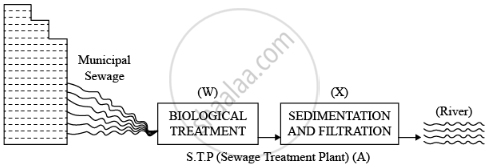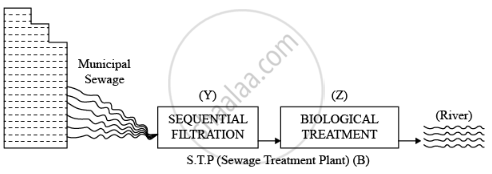Advertisements
Advertisements
प्रश्न
What would happen if a large volume of untreated sewage is discharged into a river?
उत्तर
It untreated sewage is discharged directly into rivers it will lead to serious pollution of the waters with organic matter and pathogenic bacteria, Protozoa and many other diseases. This water, if used will cause outbreaks of water-borne diseases.
APPEARS IN
संबंधित प्रश्न
Answer the following question.
Secondary treatment of the sewage is also called Biological treatment. Justify this statement and explain the process.
One of the free-living anaerobic nitrogen-fixer is _________.
The purpose of biological treatment of waste water is to ______.
In the process of biogas production which of the following anaerobic bacteria are used?
______ refers to the organic matter which settles down after physical treatment of sewage.
Study the following statements regarding tertiary treatment of sewage and choose the correct option.
i. It produces methane gas.
ii. The effluents formed from these plants undergo chlorination.
iii. BOD is significantly increased at this step.
iv. It includes screening and passage of effluent through grit chamber.
The primary treatment of waste water involves the removal of ______.
What would happen if oxygen availability to activated sludge flocs is reduced?
Study the given diagram of the Sewage Treatment Plant (S.T.P.) and answer the question that follows:


- Which one of the two 'S.T.P.' (A) or (B) will be more effective in treating the human excreta in municipal waste?
- Write the steps followed in carrying the treatment of the sewage in step (Z), once the BOD of sewage is reduced significantly till it is passed on to the "anaerobic sludge digesters".
Given below is the flowchart of sewage treatment. Identify A, B, C, D and E and select the correct option.

